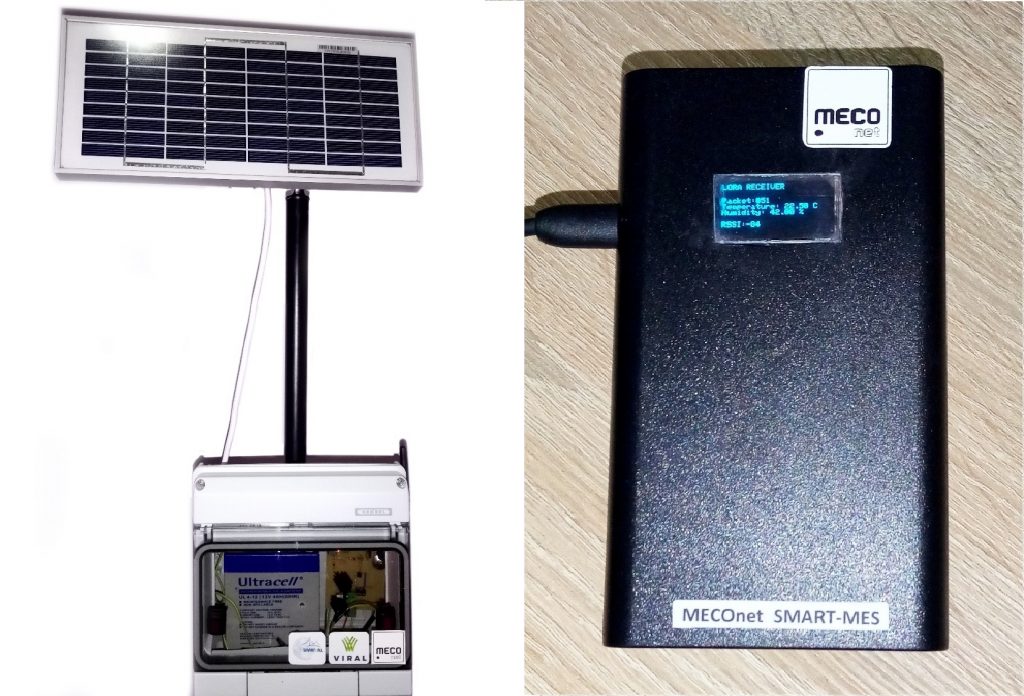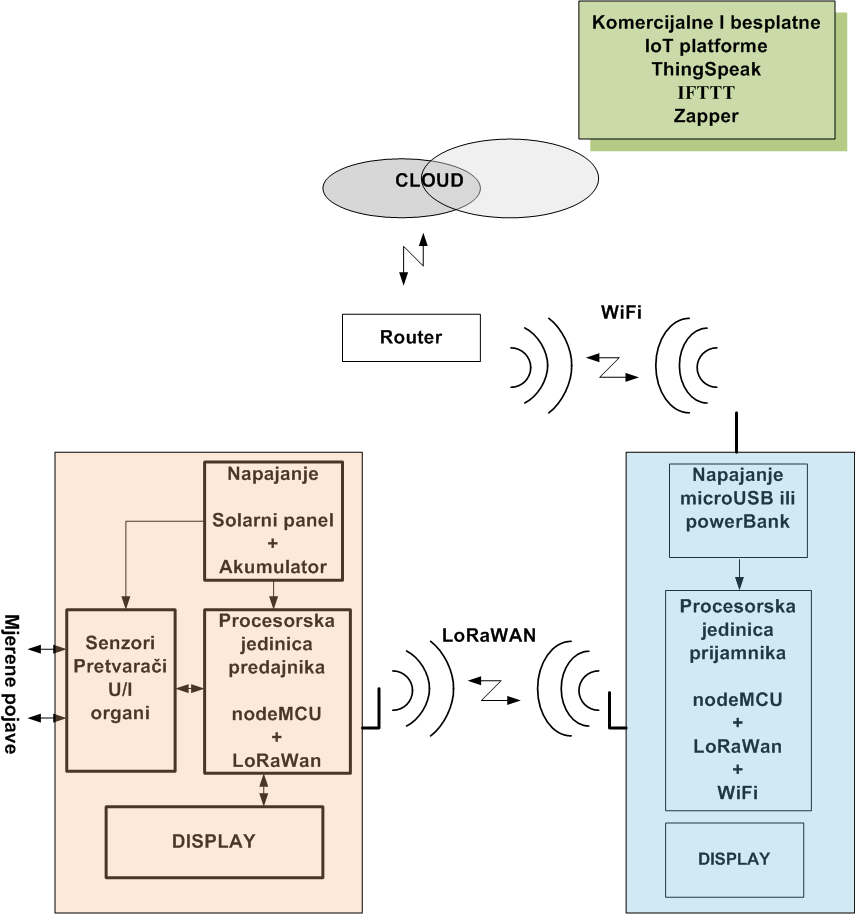We present another domestic product by MANT and MECOnet companies, SMART-MES – a domestic telemetry station (SMART Measurement Station). It is an IoT-based telemetry station of the latest generation. Sensors collect important data such as temperature, humidity, occupancy, alarm states, etc., and send them to the transmitting unit, EPU, which consists of a nodeMCU (modern networked microprocessor), LoRaWAN communication module, and autonomous solar power supply. The EPU performs data preprocessing and sends them to the receiving unit’s processor, RPU (Receiver Processor Unit), which accepts the data and forwards them to CLOUD-based IoT platforms such as ThingSpeak, IFTTT, Zapper, or customer-specific IoT platforms. As a result, the measured values can be monitored over the internet from anywhere, at any time.

SMART-MES: receiver and transmitter
The device has a combined solar and battery power supply, which, along with low energy consumption, ensures a very long period of autonomy. During the day, the solar panel provides power and charges the battery, allowing the device to continue operating in conditions of lower illumination.

Architecture of the SMART-MES system
For communication between the station and the receiver, the LoRa (Long Range) protocol is used, which is increasingly used in IoT devices due to its lower energy consumption and greater range, significantly surpassing WiFi and BTLE standards. Originally used for military and space purposes, it has recently become available for commercial use as well. This allows for a relatively long distance at which the station can be placed in the field. Using a basic antenna (20dB), experimental communication has been achieved at distances ranging from approximately 0.3-1.2 km, depending on the terrain configuration and nature of obstacles. One of the main advantages of this system is that the station can be located in areas without WiFi coverage.

Time graphs from the ThingSpeak platform
The system is highly adaptable, and its functionality can be expanded with additional sensors (such as soil moisture, wind direction and speed, etc.) as well as sending notifications or performing specific tasks.
Its main advantage is that it makes the telemetry station autonomous, suitable for precision agriculture, transportation, environmental protection, and other smart systems.
SMART-MES was developed as part of the SMART4ALL and VIRAL projects and is the result of collaboration between MANT company, MECOnet Institute and the Development Sector of Plantaže company. The designer of SMART-MES is Jovan Đurković, with mentoring from Prof. Dr. Radovan Stojanović.
